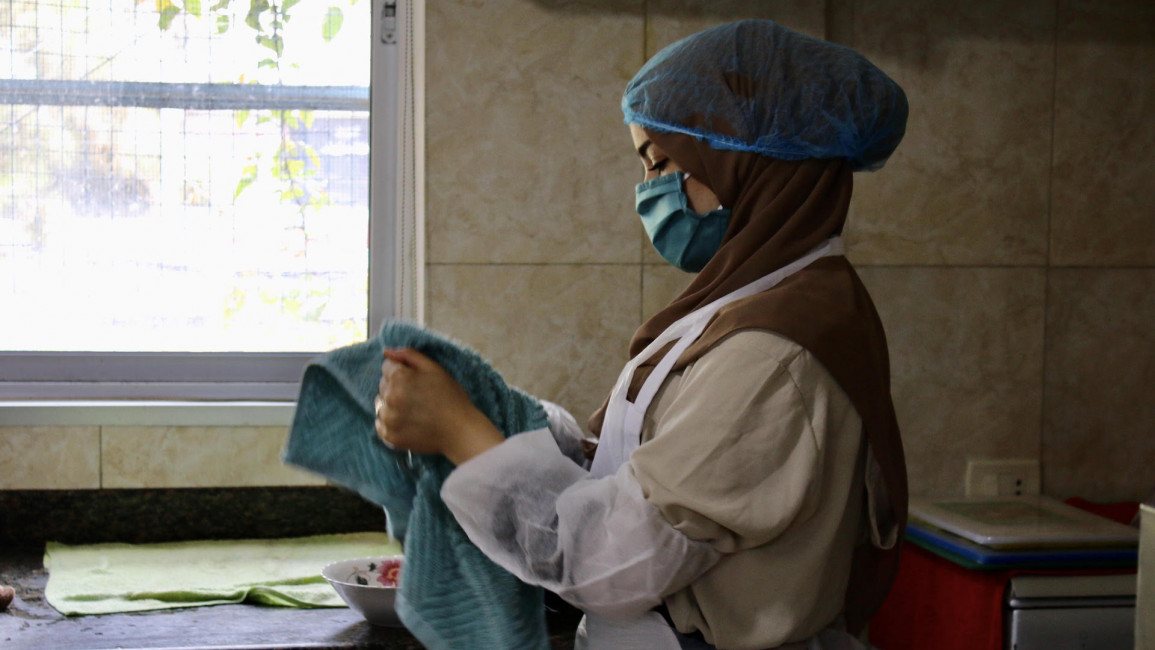Ramadan meal initiative helps Lebanese, refugees work for cash in coronavirus-ailed economy
To mitigate the impact of Lebanon's coronavirus-ailed economic crisis on vulnerable communities, Anera is providing daily stipends to refugees and Lebanese youth to cook charity Iftar meals for the entirety of Ramadan.
Young graduates of vocational cooking and hospitality courses offered by local non-profits will be paid to prepare Ramadan meals for elderly families who are unable to cook for themselves, Samar El Yassir, Anera's country director in Lebanon, told The New Arab.
The multi-faceted cash-for-work program, which Anera is executing with support from UNICEF and local partners, will feed around 6,000 families during Ramadan – ending sometime late May with Eid al-Fitr.
The US-headquartered NGO's Lebanese extension is particularly helping Lebanese youth living in impoverished regions, as well as Palestinian and Syrian refugees living in camps under coronavirus lockdown, generate some income. |
| Before preparing the meals, cooks undergo a fever check [Anera] |
"We are tailoring our response to each community’s needs," Yassir said.
Anera's team is providing refugees with food supplies after camps in Lebanon were placed on a complete coronavirus lockdown, barring their residents from exiting the camps.
"We are distributing Ramadan food parcels to those who cannot leave their homes to purchase food, such as the Wavel Camp residents who are now under total lockdown," Yassir said.
The east Lebanon Wavel Camp recently confirmed four new cases of coronavirus infection following a round of testing initiated after one of the camp's residents was admitted to the state-run Rafic Hariri hospital with Covid-19 symptoms.
The hike in cases prompted authorities to impose further restrictions on the over-crowded Wavel Camp.
|
A UNICEF representative said one of the key priority areas of the UN agency right now is helping support marginalised youth devestated by the coronavirus lockdown.
"Many families rely on daily income and with the lockdown affecting businesses in the country, they are not capable of meeting the needs of their family members," Amal Obeid, UNICEF Adolescent and Youth Programme Specialist told The New Arab.
Serene Dardari, Anera’s communication manager in Lebanon, told The New Arab the program was bringing the country's vulnerable youths together during the challenging period.
"I see all these photos of young people who are just so happy to be part of something bigger than themselves, to be helping others," Dardari said.
Read also: Spiritual lockdown: Lebanon's Muslims prepare for a tough Ramadan, but there's a silver lining
"It warms my heart to see Syrian, Lebanese and Palestinian youth working side-by-side for the common good," she added.
As of Saturday, Lebanon has recorded a total of 704 coronavirus infections, resulting in 24 deaths, according to the latest Health Ministry figures.
Gasia Ohanes is a journalist with The New Arab.
Follow her on Twitter: @GasiaOhanes



